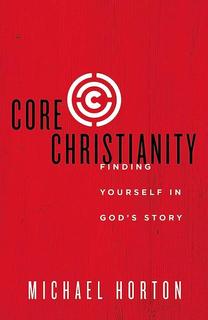So often, when people come to Christ, they are promised "victory in Jesus." Smiling, happy people tell about how they once were unhappy, and now they are filled with buoyant exultation. Broken marriages are fixed, wayward children are returned to the straight and narrow, and depression is banished to the old life, but what happens when Christianity doesn’t work?
Christianity didn’t work for Job.
Job was a man who was deeply devoted to God and his Word. So zealous was he for his family that whenever they left after the many homecomings they enjoyed, Job would offer a sacrifice on behalf of his children on their journey. Satan chided God for Job's faithfulness. Why wouldn't he be faithful?, Satan asked. After all, he lives a charmed life. He's wealthy, happy, his family is healthy and carefree. So God allowed Satan to test Job.
The next day, disaster followed disaster, and over-night Job lost nearly everything precious to him. And yet, Job responded, "Naked I came from my mother's womb, and naked I will depart. The LORD gave and the LORD has taken away; may the name of the LORD be praised." Job refused to charge God with wrongdoing. Satan came to God again and declared, "But stretch out your hand and strike his flesh and bones, and he will surely curse you to your face." Job's body became wracked with sores and pain until his own wife begged, "Curse God and die!" But Job still replied, "Shall we accept good from God, and not trouble?"
In walked Job's famous counselors. At first, they responded well, spending a week simply sitting with him, refusing to say anything because they saw his pain. What he needed was friendship, not a steady flow of sermonizing. But after the week passed, they began to express their opinions about what was going on in Job's life. It began with Job's cry of despair, cursing the day of his birth. A deep, dark cloud of depression fell over Job and he could only wish that he had never been born. It is after this lamentation that the counselors begin to offer their perspectives.
After Job and the friends finish their sermons, God finally speaks up and preaches for himself. Out of the whirlwind, he answers Job: "Who is this that darkens my counsel with words without knowledge? Brace yourself like a man; I will question you, and you shall answer me. Where were you when I laid the earth's foundation? Tell me, if you understand."
After listing a litany of divine actions that illustrate his wisdom and power over the universe, God shuts the mouths of Job and his well-meaning friends. For they all had assumed that they had access to the divine filing cabinet. They all operated under the assumption that they could discern the mind of God. How easily we attempt this when suffering strikes us or our loved-ones!
After God's defense, Job is left without excuse. In spite of his superior theology, his experience had led him to question God's sovereignty and goodness. Because he could not comprehend how this could be reconciled with his view of God, he concluded that there was no answer. But God reminded him, as he reminds all of us, that just because we don't have the answers does not mean that there are no answers.
You can’t figure out God.
The natural assumption in the face of such suffering is that somehow God is punishing us for our sins. But we, in the audience of this play, know from the prologue that this test had another source. Like Job, we make conclusions based on limited information, trying to figure out why things are happening to us. We don't have access to God's filing cabinet, to his inner chamber, and he does not directly tell us why bad things are happening, but that doesn't keep us from drawing conclusions anyway.
We immediately strike out to rationalize the purpose behind it all. But God refuses to be "figured out" in these matters and his counsel is hidden to mortals. God asks them all, "Can you make a pet of [me] like a bird or put [me] on a leash for your girls? Any hope of subduing [me] is false; the mere sight of [me] is overpowering. Who then is able to stand against me? Who has a claim against me that I must pay? Everything under heaven belongs to me."
For those who are tied to the high masts of suffering, there is often a fear that is greater than the fear of death. It is the fear of life. It is the fear of the next morning and the morning after that.
In the face of deep despair, the temptation is great to either turn away from God because the suffering is somehow credited to his wrath toward personal sins, or to turn toward him because one knows that he or she is at peace with God. This is why Job said that he would be able to turn toward God in this situation if only he had a go-between, an advocate. Gradually, he comes to a greater confidence in this mediator:
"Even now my witness is in heaven; my advocate is on high. My intercessor is my friend as my eyes pour out tears to God; on behalf of a man he pleads with God as a man pleads for his friend."
Even if we are too weak to hang on to Christ, he is strong enough to hang on to us. Even though we may not be able to face tomorrow, Christ has already passed through death to the other side and has taken away death's sting for us. Like Job, who knew that his Redeemer lives and that he would see him in the very body that was at present covered with bloody and painful sores, the Apostle Paul declared, "If Christ has not been raised, our preaching is useless and so is your faith…If only for this life we have hope in Christ, we are to be pitied more than all men."
Christianity is not true because it works.
In many cases, it does not work. That is to say, it does not solve all of the problems that we think it should solve. Those who become Christians because they were told it would fix their marriages, only to find themselves in divorce court, might well give up on Christianity. Those who expected to be free of sinful habits and desires after a conversion in which "sudden victory" was promised may find themselves disillusioned with God altogether soon thereafter, when they realize that they are still sinners saved by grace.
We are not called here this afternoon to judge God. God didn't promise any of us health, wealth, and happiness. In fact, he tells us that we who expect to share in Christ's glory will also participate in his suffering. Christianity is true, not because it works for people but because nearly 2,000 years ago, outside of the center-city of Jerusalem, the Son of God was crucified for our sins and was raised for our justification.
This historical event may not fix our marriages, our relationships or our messed-up lives the way we would like, and in the timing, we would like, but it saves us from the wrath of God to come. And surely in view of this, all else pales not into insignificance, but into secondary importance to that great issue. "For it is appointed for a man once to die, and then the judgment."
Christianity offers hope even when it doesn’t work.
The perfect righteousness that God requires of us was possessed by only one man who ever lived, the Redeemer to whom Job and Paul and every other saint have looked for shelter from death and hell. The moment we trust in Christ and renounce our own claims to holiness and acceptability, stripping away the fig leaves of our own making, God clothes us in the robe of Christ's righteousness.
Because of Christ's life of obedience, his sacrificial death, and his triumphant resurrection, we are accepted by the Father and made his heirs, given the Holy Spirit and promised the resurrection of our own mortal flesh. This means it is safe to look up to God again.
As Job said that if only he had an advocate, a mediator, he could lift his eyes up to God in his suffering, so all of us can cry on our Father's shoulder because we have nothing to fear. It is not his wrath that has sent us pain and suffering if we belong to him, for he intercepts Satan's designs and fashions even sin and evil into messengers of grace.
And for all of us here who are afraid of death, or of life, the good news is that this man is still at God's right hand, this advocate who pleads our case. His name is Jesus Christ and if your faith is in this Rock of Ages and in this Mighty Fortress, he will be your friend, in this world and in the world to come.






